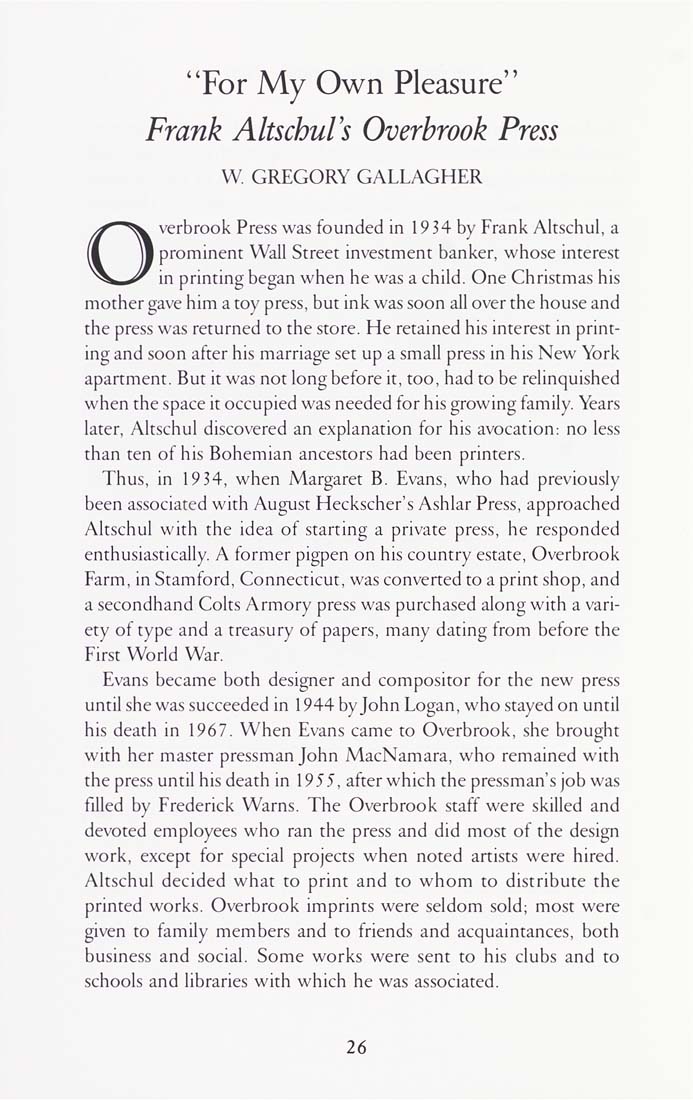Columbia Library columns (v.42(1992Nov-1993May))
(New York : Friends of the Columbia Libraries. )
|
||
|
|
|
|
| v.42,no.3(1993:May): Page 26 |

"For My Own Pleasure" Frank Akschul's Overbrook Press o\ W. GREGORY GALLAGHER verbrook Press was founded in 19 34 by Frank Altschul, a I prominent Wall Street investment banker, whose interest in printing began when he was a child. One Christmas his mother gave him a toy press, but ink was soon all over the house and the press was returned to the store. He retained his interest in print¬ ing and soon after his marriage set up a small press in his New York apartment. But it was not long before it, too, had to be relinquished when the space it occupied was needed for his growing family. Years later, Altschul discovered an explanation for his avocation: no less than ten of his Bohemian ancestors had been printers. Thus, in 1934, when Margaret B. Evans, who had previously been associated with August Heckscher's Ashlar Press, approached Altschul with the idea of starting a private press, he responded enthusiastically. A former pigpen on his country estate, Overbrook Farm, in Stamford, Connecticut, was converted to a print shop, and a secondhand Colts Armory press was purchased along with a vari¬ ety of type and a treasury of papers, many dating from before the First Worid War. Evans became both designer and compositor for the new press until she was succeeded in 1944 by John Logan, who stayed on until his death in 1967. When Evans came to Overbrook, she brought with her master pressman John MacNamara, who remained with the press until his death in 1955, after which the pressman's job was filled by Frederick Warns. The Overbrook staff were skilled and devoted employees who ran the press and did most of the design work, except for special projects when noted artists were hired. Altschul decided what to print and to whom to distribute the printed works. Overbrook imprints were seldom sold; most were given to family members and to friends and acquaintances, both business and social. Some works were sent to his clubs and to schools and libraries with which he was associated. 26 |
| v.42,no.3(1993:May): Page 26 |







